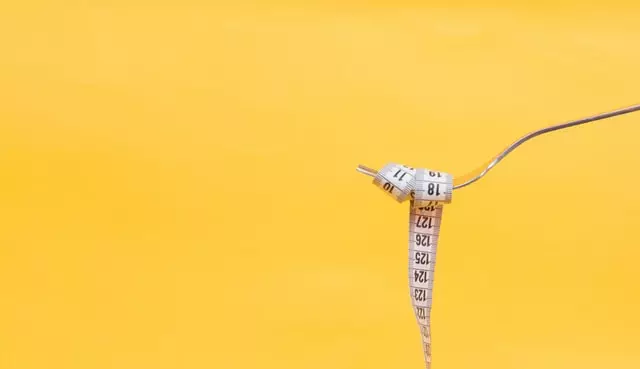When we decide to change our diet, we always think of an ideal diet to follow. To change our relationship with food we often opt for dieting. But we always question ourselves why our dieting is not effective???
Well to answer that it’s because the diet usually lacks some major element resulting in no visible changes.
What is a Diet?
The total amount of food and drinks consumed by a person is called his/her diet. It accounts for the nutritional uptake by our body.
What is Dieting?
Conscious control and regulation of food intake, in turn also reducing the edibles is called dieting. It’s usually practiced for weight loss or weight gain, PCOS, etc.
When dieting or cutting out food from our diet numerous times we miss out on various nutrients. Like we mostly cut out sugar but many of us unknowingly stop the carbohydrate uptake. This can cause severe health concerns as we remove the major source of energy. We confuse between carbs and carbohydrates.
Not only this we stick to an all-protein diet which can be harmful in the case of diabetes patients. High amounts of body protein lead to increased amounts of uric acids.
All the components of a diet are important and so is every single nutrient.
What is an Ideal Diet then?
A diet that includes carbohydrates, proteins, essential fats, roughage, vitamins, minerals, and water. A plate containing vegetables, chapati or whole wheat bread, lentils, salad, or fruits can be considered as an ideal diet. These can be consumed at various hours of the day along with enough hydration.
Foods a perfect diet should include:
- Vegetables
- Legumes
- Fruits
- Nuts
- Seeds
- Whole grains
- Fish and seafood
- Meat; red meat preferably
- Dairy products
- Eggs
- Milk
- Red wine
- Water
- Herbal tea.
What can a regular ideal diet include??
A regular diet can have the following servings:
- Grain servings: Bread, cereal, rice, can be consumed as 6 to 8 servings
- Vegetables and fruits: Vegetables being low on calories can be taken up to 3 servings a day, whereas fruits 1 to 2 servings a day. Some fruits like mangoes have natural sweeteners.
- Milk products: Milk acts as a superfood, cheese, yogurt, butter can be consumed for 2 to 3 servings a day.
- Meat and fish: Being high protein-based food, they can be taken 1 to 2 servings a day.
- Oils, fats: Very limited amounts of oils can be used as a diet would be incomplete without Switching to virgin olive oil is a healthy alternative.
What are various kinds of diets one can follow?
Diets like low carb diet, Keto diet, diet, Paleo diet, Mediterranean, Vegan, Gluten-free diet can be followed.
All of these diets focus on various aspects like low-carb food, avoiding sweets and fried food, processed, uncooked, and junk food.
Are plant-based diets better?
Plant-based diets are very healthy. The basic elements like vegetables, legumes, lentils, fruits all are nutrient-rich. They have enough to keep one going without the need for animal products. A vegan diet is one of the best plant-based diets. They also focus on not using any products that might be obtained from animal torture.
What is the healthiest diet to follow?
According to the new ranking list by UK’s Ranking list, the Mediterranean Diet is considered the healthiest to follow. It is rich in foods like vegetables, fruits, whole grains, olive oil, nuts; all of these are heart-healthy foods.
Is dieting the most effective way of losing weight?
Dieting alone is not very effective, workout can be included for best results. Some people cut off food and lose weight but they end up losing all essential nutrients, they have a slim body, not a fit body; which is susceptible to diseases.
Not only is the quality of food necessary the quality and time also play an important role. Reducing the quantity can make one weak, the quality includes mainly whole foods and superfoods like milk, kale, whole grains, nuts, etc.
Meals should be consumed within specific hours. At least 4 meals a day must be regulated- Breakfast, lunch, dinner, and snacks.
- Breakfast should be consumed before The most probable hour being 7:00 – 7:30 AM.
Breakfast should be eaten in an hour after waking up. - For lunch a gap of 4 hrs should be maintained from A time around 12:30 to 1:00 PM would be great.
- Dinner should be had before 7:00 in the evening. A time gap of around 3 hours is helpful between dinner and sleep.
- Snacks or workout meals can be had before and after
What can be the drawbacks of following a diet?
Following an ideal diet cannot have drawbacks. But cutting out food can definitely cause weakening, anemia, fatigue. This interrupts the body’s functioning and regular work routines too. Fainting and falling can be some of the worst outcomes.
Diet works differently for everyone, some might consider it eating healthy food to lose weight, whereas for some it is eating an ideal plate of food. It may vary according to one’s experience with feeding habits.
A perfect human diet is nothing but an ideal diet.

